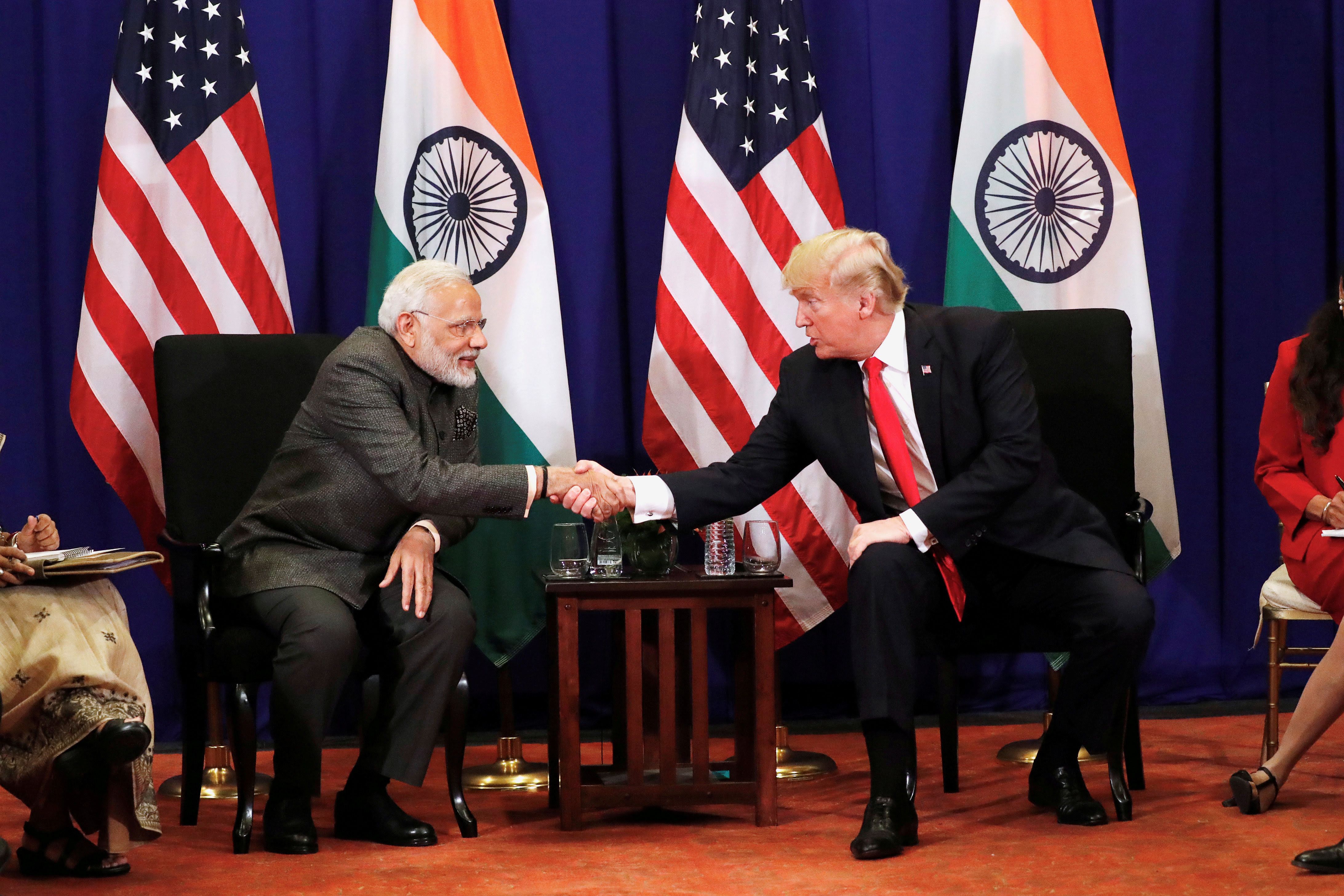September 05, 2018
In the most important geopolitical region in the world, the Asia Pacific, the Trump administration has its bets placed squarely on India. Its strategy, which includes a rebrand befitting a salesman turned president, depends on closer relations between the US and India and India playing a larger role throughout Asia.
So as US Secretary of State Mike Pompeo and Defense Secretary Jim Mattis arrive in New Delhi tomorrow for the 2+2 dialogue (so-called because it involves foreign ministers and defense secretaries from each side), one of the highest-level dialogues between the two countries since Trump took office, it bears asking – How are things going?
On many fronts, relations between the US and India are on an upward trajectory. Perhaps the strongest area of cooperation is on arms sales—where India went from importing zero US-made equipment in 2008 to around $15 billion in the decade since. Secretaries Pompeo and Mattis are looking to use their trip this week to sign a long-stalled defense pact that would enable billions more in weapons deals and expand military ties, including the sharing of encrypted communications and communications systems. The recent US decision to cut off military aid to Pakistan should certainly help boost trust.But there remain points of friction, particularly on economic issues, that could ultimately limit the deeper cooperation envisioned by US strategy. India has a large trade surplus with the US, a particular bone of contention for President Trump, and was hit by US steel and aluminum tariffs earlier in the year—which though not yet economically damaging have proven to be an irritant. In addition, the US is currently considering two different sanctions packages against India—one for its planned purchase of a Russian-made air defense system, the other because of its continued reliance on Iranian oil imports. Trump’s tendency to mimic his Indian counterpart, Prime Minister Narendra Modi, is certainly not helping his administration’s efforts to cozy up to a man who oversees one-sixth of the world’s population.
Even if they can get along, there’s a broader question: Could India ever provide the US the reliable foothold it wants in Asia? Here, the US faces two problems. First, India remains a reluctant power that will struggle to challenge China strategically in the region. Second, deeper ties with India will do little to combat China’s growing economic clout—of which India is, and will continue to be, a willing beneficiary. For the US, it will take more than 2+2 to tango in Asia.
More For You
Mastercard Economic Institute's Outlook 2026 explores the forces redefining global business. Tariffs, technology, and transformation define an adaptive economy for the year ahead. Expect moderate growth amid easing inflation, evolving fiscal policies, and rapid AI adoption, driving productivity. Digital transformation for SMEs and shifts in trade and consumer behavior will shape strategies worldwide. Stay ahead with insights to help navigate complexity and seize emerging opportunities. Learn more here.
Most Popular
Think you know what's going on around the world? Here's your chance to prove it.
Miami Mayor-elect Eileen Higgins points as she thanks her staff and supporters on the night of the general election, on Tuesday, Nov. 4, 2025.
Carl Juste/Miami Herald/TNS/ABACAPRESS.COM
A Democrat won Miami’s mayoral race for the first time in nearly 30 years. The Republican defeat will ring some alarms for the party – and their support among Latino voters.
Women work in the plastic container assembly area inside the El Oso shoe polish factory, located in Mexico City, Mexico, in its new facilities, after officers from the Secretariat of Citizen Security and staff from the Benito Juarez mayor's office arbitrarily and violently remove their supplies, raw materials, machinery, and work tools on January 17 of this year following a coordinated operation stemming from a private dispute. On August 27, 2025.
Photo by Gerardo Vieyra/NurPhoto
50: Mexico’s President Claudia Sheinbaum is taking a page out of US President Donald Trump’s book, implementing up to a 50% tariff on more than 1,400 products in a bid to boost domestic production.
© 2025 GZERO Media. All Rights Reserved | A Eurasia Group media company.
